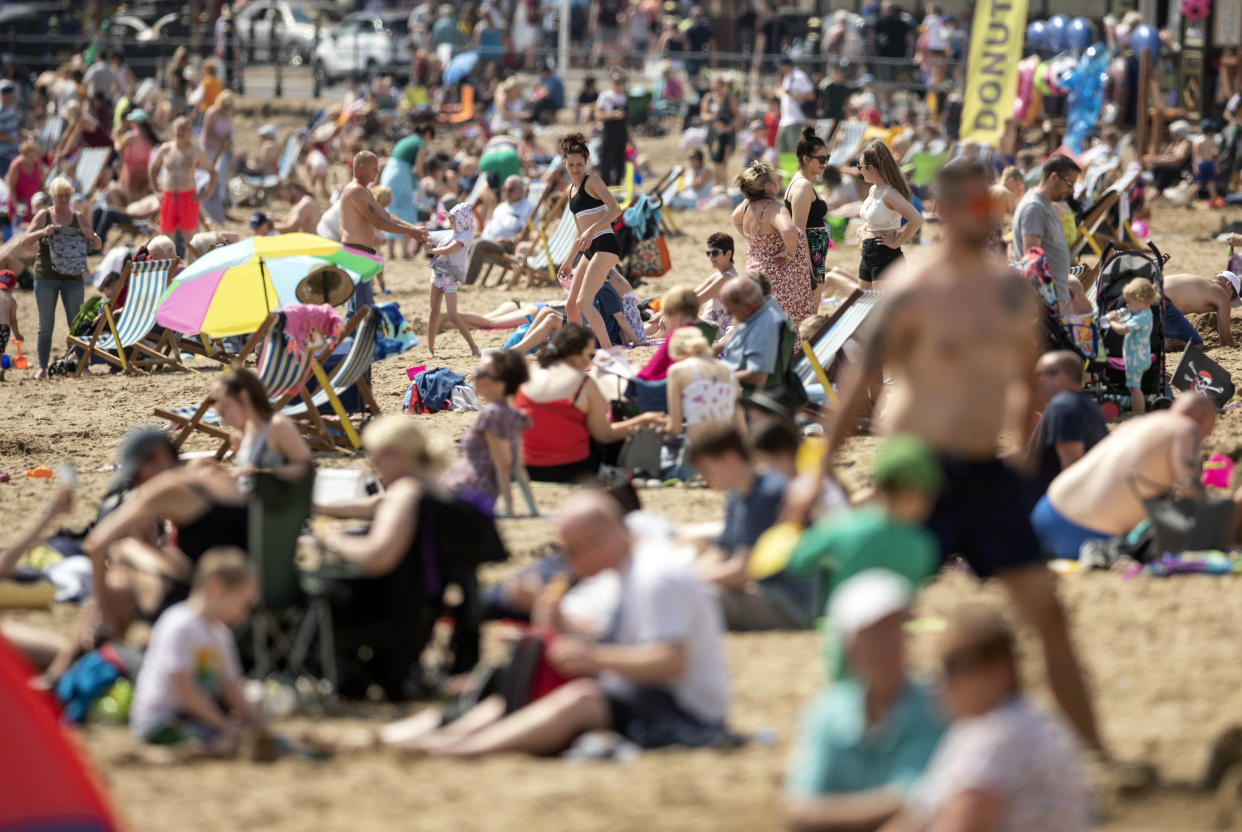Are we now set to face extreme summer temperatures every year?

Everybody loves a summer full of sunshine, but do you get the feeling the hot days are getting hotter each year.
It’s not your imagination - the current heatwave doesn’t just feel scorching, but is set to bring the highest July temperatures ever.
Climate scientists have also predicted that 2019 is likely to be the second warmest year ever recorded, after 2016, and according to the US National Oceanic and Atmospheric Administration, nine of the 10 hottest years on record have been since 2000.
It’s no fluke, and experts have warned that we should probably get used to more extreme temperatures.
Extreme heat and record breaking temperatures are being reached across Europe. Are these conditions due to global warming and what are the effects on the human body?
Find out on the latest Weather Snap podcast https://t.co/1jmunXnDw6#heatwave #heatwaveUK #WeatherAware pic.twitter.com/ggGuLRttGI— Met Office (@metoffice) July 24, 2019
The Met Office said that climate change means we’re 30 times more likely to see heatwaves like that of summer 2018.
It predicted that by 2050 summers like this are likely every other year on average.
READ MORE
Boris Johnson holds first Cabinet meeting of new team after brutal cull
Dr Mark McCarthy, from the Met Office National Climate Information Centre, said: “The UK climate has been warming since the mid 20th Century, and this has been accompanied by similar increase in the hottest day of the year, which for the most recent decade has been 0.8C higher when compared with the period 1961-1990.
“Climate change has increased the likelihood and severity of heatwave episodes across Europe, which will have also increased the risks of a 40C temperature event in the UK.
He added: “This year temperature records across Europe have been falling and there is a significant chance of seeing the July maximum temperature record and possibly even the all-time UK temperature record of 38.5C being broken. 40.0C is also a possibility this week.
“In 2018 the Met Office published an analysis showing that human emissions of greenhouse gases made the summer of 2018 thirty times more likely to occur.”
Dr Karsten Haustein, postdoctoral researcher at the University of Oxford’s School of Geography and the Environment, who works on the World Weather Attribution Project, told Yahoo News UK: “Yes, we should expect extreme events and heatwaves to occur more often.
“As it always is with statistics, that doesn’t mean that five summers, or 20 summers, in a row are going to be hotter than in the past. That’s not how it works, it’s just that we have a much higher chance of having really hot summers or hot periods.”
He said the last really hot day was 2003, when temperatures reached 37.5C in parts of the UK, pointing out that it has taken more than a decade for records to be broken again, and it could be another 20 years before another record-breaker.
But he added: “The frequency of probability for such events to occur is simply increasing, in some regions by quite a lot.”
Cimate scientist Professor Michael Mann, from Penn State University, warned last year that climate change was behind the extreme temperatures.
He told the Guardian: “The impacts of climate change are no longer subtle,” he told the Guardian. “We are seeing them play out in real time and what is happening this summer is a perfect example of that.”

 Yahoo Movies
Yahoo Movies 

